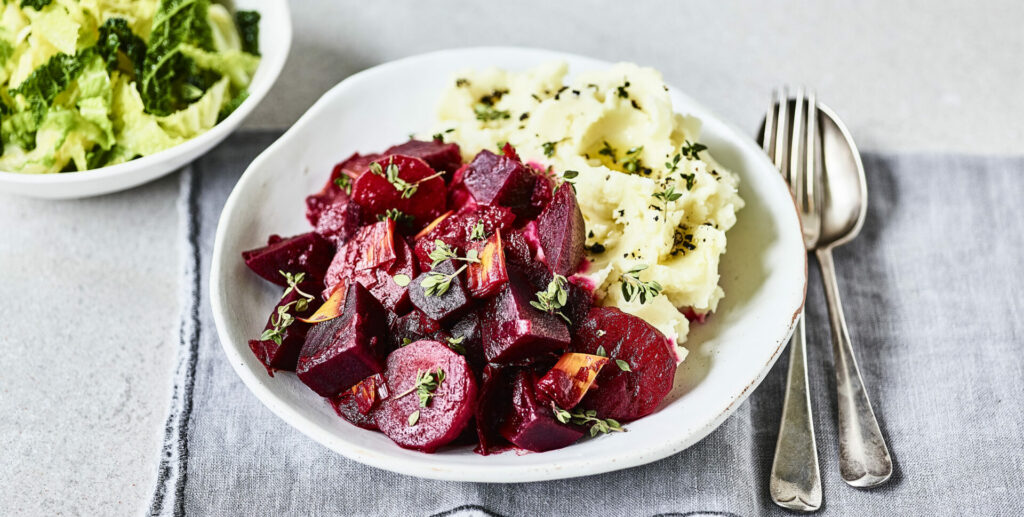24 May 2023

How To Give Yourself a ‘Health MOT’ this Spring
The start of a new season is the ideal time to check in on your overall health and think about small lifestyle changes that can help. Our advisor, Dr Sarah Jarvis, shares some of her top ways to give yourself a health MOT this season…
From reviewing your salt intake, to tweaking your cooking habits and knowing your blood pressure numbers, there are lots of simple steps you can take – and the good news is, none of them have to be difficult!
Know Your Blood Pressure Numbers
Knowing your blood pressure numbers is crucial for preventing future health issues.
Your blood pressure is the pressure inside your arteries (blood vessels), created by your heart pumping blood out round your circulation. If this pressure is too high, it means your heart is working harder to pump blood around your body. It also means there’s more pressure inside your personal pipes – and that in turn means there’s more change of a rupture inside one of your arteries, leading to a blockage. If that blockage is in the arteries supplying blood to your heart, the result is a heart attack. If it’s in your brain, it leads to a stroke.
High blood pressure is often known as the ‘silent killer’ as it rarely causes symptoms, yet is one of the leading risk factors for heart disease and stroke.
As a adult it’s important to get into the habit of having your blood pressure checked, especially if you’re over 40, carrying extra weight or have other health problems. You can have it checked at your GP surgery, in some pharmacies, or even measure it yourself at home, using a BP home monitor.
Knowing your numbers means you can keep track of whether your blood pressure is high. And this in turn tells you whether you need to make other lifestyle changes (such as reducing your salt take) to help manage it.
Review Your Salt Habits
When it comes to our salt intake, as a nation, we consume far too much. In the UK, it is recommended we consume a maximum of 6g salt (about a teaspoon) a day from all sources in our diets. Instead, on average we’re taking in about 8.4g a day – 40% higher than recommended.
While many people tend to focus on limiting sugar it’s just as important to review your salt intake too.
The good news is that salt is one of the easiest modifiable factors in the diet. By making a few small changes and swaps here and there, you can bring your salt intake down and potentially make a big difference to your health.
Easy ways to reduce your salt intake include…
- Not being fooled into thinking gourmet sea and rock salts are better for you – they contain exactly the same amount of sodium as regular table salt!
- Cutting down on processed foods and keeping processed meat to a minimum
- Reading food labels and opting for reduced salt versions of products where possible – as well as choosing foods that are colour coded ‘green’
Cook the Healthier Way
Have you found yourself in a bit of a rut when it comes to cooking, opting for ready-made meals, sauces and takeaways instead of cooking from scratch? This could be raising your salt intake and in turn, increasing your risk of high blood pressure. So make spring the time you take advantage of all the bounty nature has to offer to make some tasty tweaks to your diet and do your body a favour.
Spring offers a great opportunity to revisit delicious seasonal ingredients to cook with, from kale and spinach, to beetroot, new potatoes, and leeks.
Cooking from scratch and learning to ‘season with sense’ is the perfect way not just to fill your plate with nutritious ingredients, but also help keep track of the amount of salt in your food – and it doesn’t have to be time consuming or tricky!
This recipe for LoSalt’s Beetroot Bourguignon for example is a personal favourite. It’s easy to prepare, sits on the hob cooking for 40 mins and can be served with mash or seasonal new potatoes.
Beetroot Bourguignon
|
|
|

Ingredients
|
Method
|
For further advice from Dr Sarah on the dangers of salt and how to manage your blood pressure at home, visit our blog here
*LoSalt 2023 ‘Salt Habits’ research
[1] Public Health England (Page 22) https://assets.publishing.service.gov.uk/government/uploads/system/uploads/attachment_data/file/876252/Report_England_Sodium_Survey_2018-to-2019__3_.pdf
Ref 3a https://www.ons.gov.uk/releases/riskfactorsforundiagnosedhighbloodpressureinengland2015to2019
